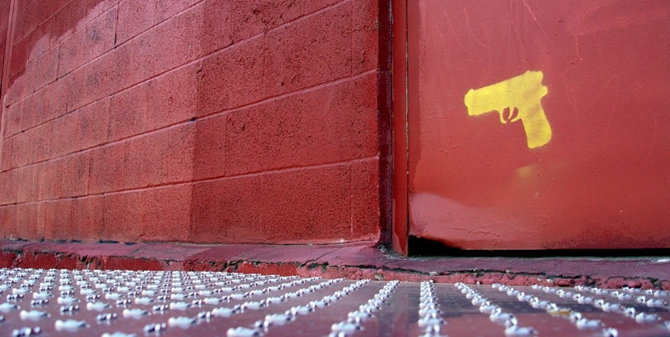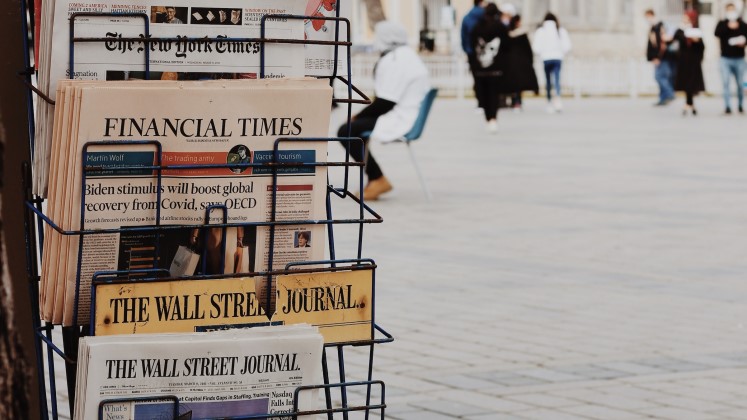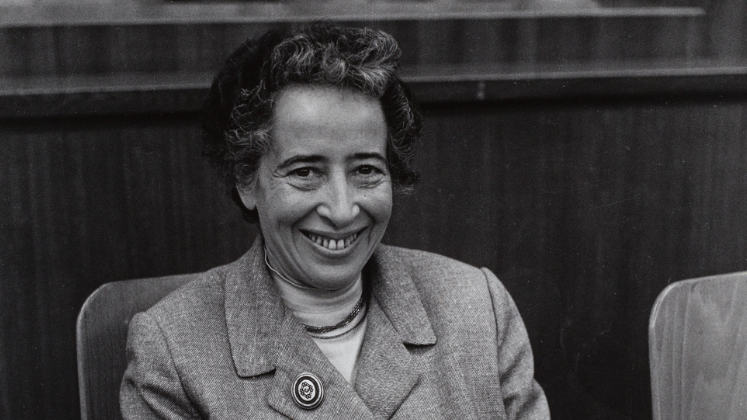 Recent events have reopened the debate over the role of guns in U.S. society, at a time when many states are expanding gun laws through open and concealed carry measures. How can we account for the popularity of guns in America, especially among men? Jennifer Carlson investigated this question by interviewing, and spending time with, gun-owning men in Michigan. She found that for these men, protecting their family and community was an important part of their gun ownership, a role which is has become even more important in light of their decline as breadwinners in a difficult economic climate.
Recent events have reopened the debate over the role of guns in U.S. society, at a time when many states are expanding gun laws through open and concealed carry measures. How can we account for the popularity of guns in America, especially among men? Jennifer Carlson investigated this question by interviewing, and spending time with, gun-owning men in Michigan. She found that for these men, protecting their family and community was an important part of their gun ownership, a role which is has become even more important in light of their decline as breadwinners in a difficult economic climate.
Since the 1970s, there’s been a major legislative shift in most US states: Americans not only can legally own guns – they can also legally carry them on their persons as they go about their daily lives thanks to new “shall-issue” laws. Over 8 million Americans – the vast majority of them men – are licensed to carry guns concealed, and protection is now the number-one reason Americans give for owning guns, surpassing hunting.
What gives? Overall, crime is down, after all. The other dominant argument – that this is about white men clinging to their waning privilege – doesn’t entirely hold, either. In Metro Detroit, where I researched gun carriers, African Americans are more likely than whites to have a concealed pistol license. What, then, explains the appeal of gun carry to men – and, seemingly, diverse groups of men? What are guns doing for the men who carry them?
I went to Michigan, a historically Blue state that had revamped its concealed carry law in 2001, to find out. I interviewed 60 men who were licensed to carry guns in Michigan, and I spent time at shooting ranges, at pro-gun picnics, in firearms classes and on Internet gun forums to understand what motivates people to make a gun part of their everyday lives. During this fieldwork, I often heard about self-defense – but I also heard about much more. I heard from people like Gerald, an African American gun carrier, who felt it was his duty to be “the man” in a family of “rolling stones.” Or Brad, a white gun carrier, who saw his duties as head-of-household as tied to his ability to provide for his family – and protect them. Carrying a gun, for these men, wasn’t just about standing up for Second Amendment rights (although that is certainly part of it). It was also about stepping up to the plate as men, fathers, and community members as protectors.
Carrying a gun, of course, isn’t the only way to be a man. Sociologist Nicholas Townsend argues that historically, ideals of American manhood have been tied to fatherhood, marriage, employment and home ownership. Interestingly, Michigan helped to create this idealized manhood: Michigan’s prosperity and prominence in labor struggles helped create the structural conditions for the male breadwinner job, which could support a family with good wages, pensions and benefits. But with the unraveling of unions and the welfare state, American society has been increasingly characterized by neoliberal shifts toward privatization, deregulation, and automation. Michigan was the only state with a statewide decline in employment from 1990 to 2009. Union membership rates have decreased from 26 percent in 1989 to 16.6 percent in 2012, a steeper decline than the U.S. average. Meanwhile, Michigan’s median household income has declined 19.2 percent from 2000 to 2012, the largest drop of any state.

Gun carriers offered up nostalgic references to the glory days of Michigan, when industry was booming, breadwinner jobs were plentiful, family dinners organized domestic life, and the streets felt safe. While gun carriers may have viewed Michigan’s past through rose-colored glasses, their words conveyed a sense of loss and despair about what Michigan once was – and could have been. Frankie, a retired African American who came of age in Detroit in the 1960s and 1970s, told me about “back then”: “they were hiring people off the street with zero education, and they could work 20 years, and they could make a living. You can’t do that shit now.” Christopher, a white gun carrier who lived in the suburbs, emphasized the “family unit that’s no longer in existence”: “When I grew up – it was family dinners, it was a lot of family interaction, and there was always family involvement. Now, because of the economy, because of keeping up with the Joneses, you have two parents working one job, 12-14-plus-hour days, five to six days a week.”
What has been lost in Michigan’s socio-economic decline was not just economic security but men’s economic position as breadwinners. An extreme case, Michigan is at the center of a much broader process of economic restructuring that has spelled out – as Hanna Rosin coined it – the “end of men”. And while the loss of blue-collar jobs has been felt most acutely in Michigan, the shift from stable, union jobs to more precarious work is a national problem that has undermined men’s access to jobs that once defined them as useful, productive members of their families – and society.
This is where guns come in. In this context of socioeconomic decline, guns provide another “tool” in the gendered “toolbox” for men to assert themselves as useful and relevant men – that is, as protectors. No longer guaranteed the middle-class lifestyles promised to their parents, men use guns not simply to instrumentally address the threat of crime but also to negotiate their own position within a context of socioeconomic decline by emphasizing their role as protector. Thus, gun carry meshes with on-the-ground socioeconomic insecurities to transform Second Amendment politics from an ideological issue to a concrete, everyday practice. And in carrying guns, many Americans are doing much more than just exercising their rights to self-defense – they are also asserting a particular moral politics surrounding what it means to be a good man, a good father, and good community member – through protection.
A version of this article first appeared at the Gender & Society blog.
This article is based on the paper, “Mourning Mayberry: Guns, Masculinity, and Socioeconomic Decline” in Gender & Society.
Please read our comments policy before commenting.
Note: This article gives the views of the author, and not the position of USApp– American Politics and Policy, nor of the London School of Economics.
Shortened URL for this post: http://bit.ly/1emo0sd
_________________________________
 Jennifer Carlson – University of Toronto
Jennifer Carlson – University of Toronto
Jennifer Carlson, PhD is an Assistant Professor in the Department of Sociology at the University of Toronto.






1 Comments